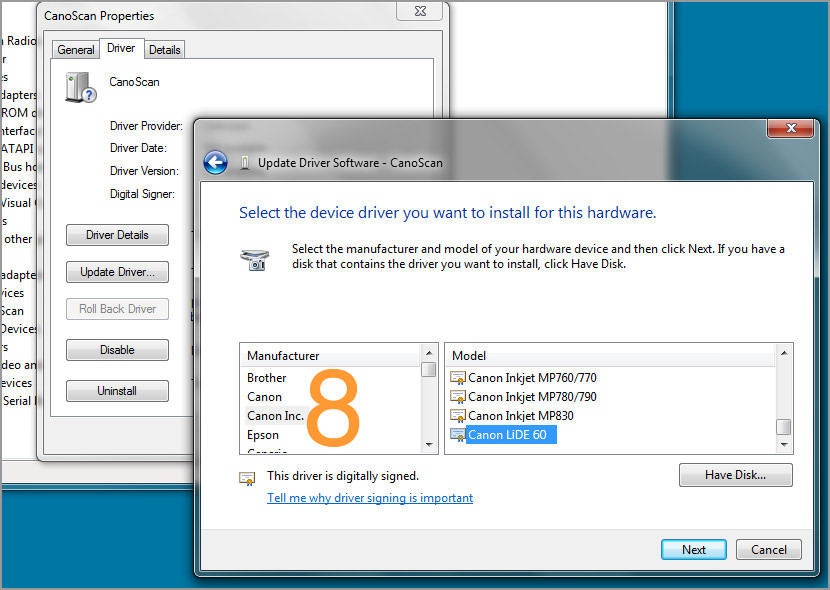

Next step was to patch /usr/src/sys/dev/usb/usbdevs and Ugen0: Canon CanoScan, rev 1.10/1.00, addr 2 Was first plugged into the USB port, the kernel's generic USB driver With the scanner plugged into the FreeBSD host I ran sane-find-scanner, which reported the vendor (Canon, 0x04A9) and the model (0x220D).Ĥ.8's drivers recognize the vendor but not the model. As it turns out a later version was available throughįreeBSD Ports, and was required in order to get good colour calibrationįrom the LiDE20.

(This pulled in sane-backends-1.0.11, the latest pre-built package under FreeBSDĤ.8 at the time. For simplicity I installed the FreeBSD package
#Canoscan lide 20 n670u n676u install
Install SANE's "backends" (the user-space libraries to drive a range ofĭifferent scanners).
The SANE (Scanner Access Now Easy) package. Dell Dimension XPST450 running FreeBSD 4.8. There are three key components to this little saga: LiDE20 scanner is now connected by USB port to my FreeBSD 4.8 host and There were also some problems with gamma settings for the LiDE20 - theĬommunity that supports this scanner was still working on identifyingĪn optimal set of configuration codes in 4Q 2003. The main complexity was two short kernel usbĭriver patches to recognize the LiDE20's vendor and product codes. My main home machine was runningįreeBSD 4.8 at the time. That the SANE package of open-source support for scanners had evolved Initially forced to use it under Windows. I purchased a CanoScan LiDE20 USB scanner in January 2003, and was You, if you're reading this page and you aren't me). Using a CanoScan LiDE20 USB scanner under FreeBSD 4.8įor my own benefit, although I've written it in the hope it will be useful to others (like






 0 kommentar(er)
0 kommentar(er)
